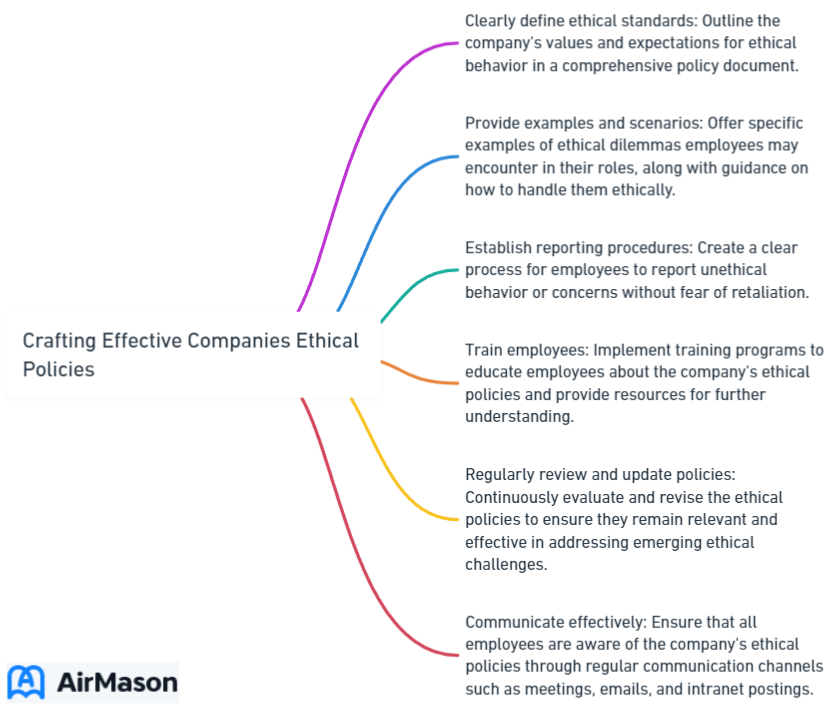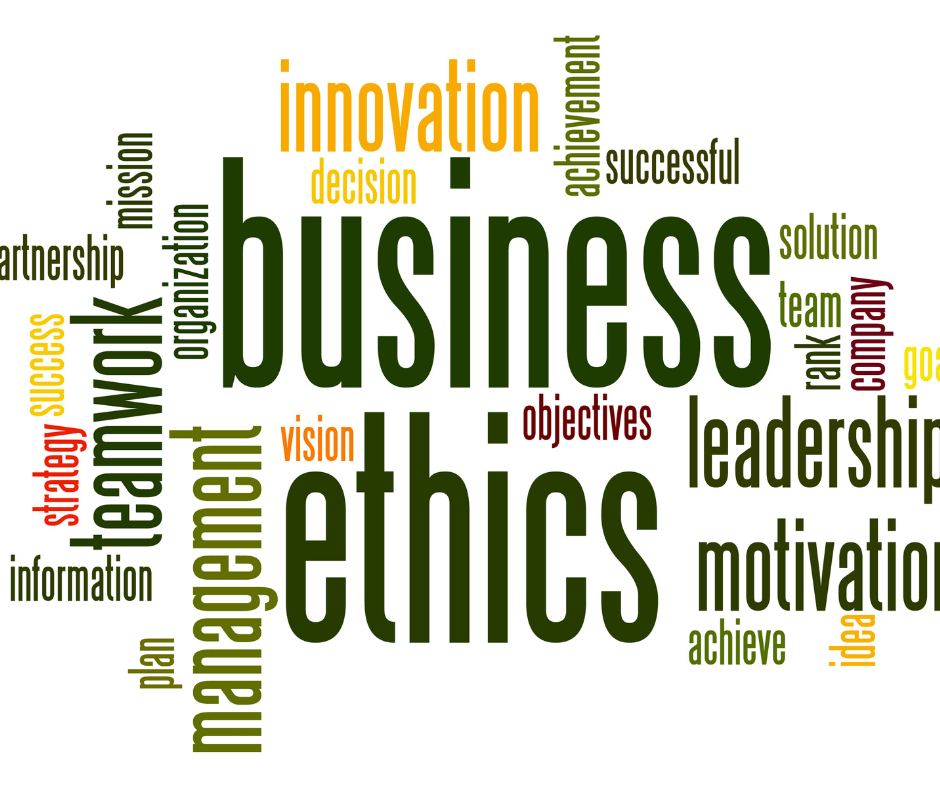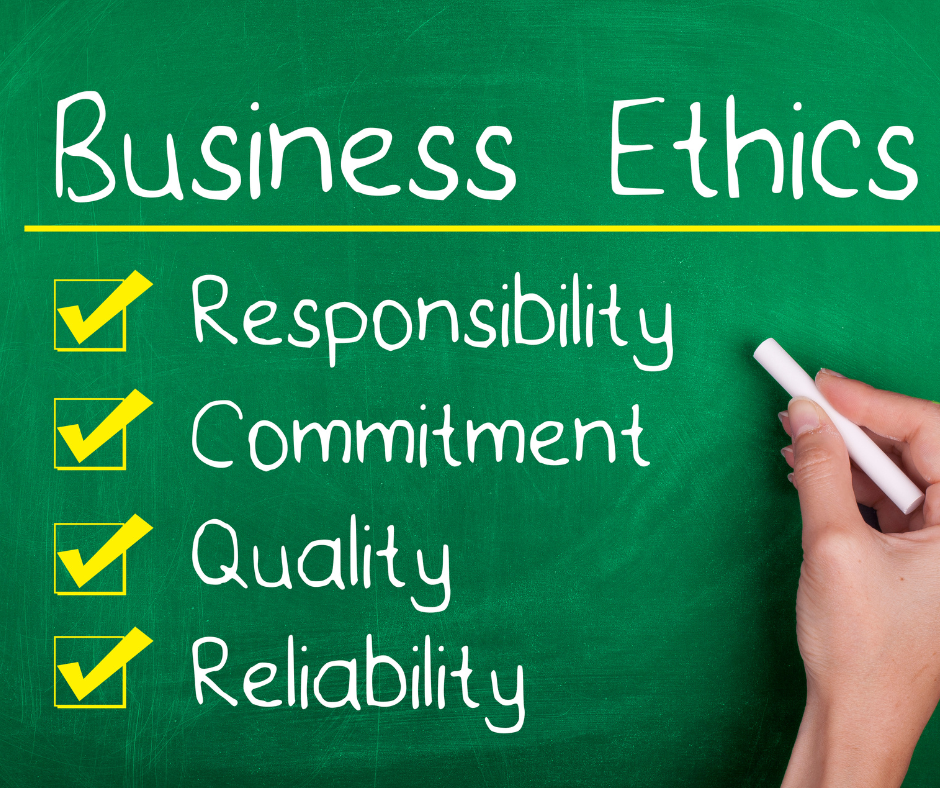
In today’s highly competitive and rapidly changing business environment, crafting effective companies ethical policies has become increasingly vital for companies seeking to maintain a positive company culture and uphold their reputation. Establishing a strong ethical foundation not only ensures legal compliance but also fosters an environment where employees can thrive and businesses can prosper. This blog post will guide you through the process of developing a comprehensive ethics policy, addressing key ethical issues, and promoting ethical decision-making within your organization.
From understanding the importance of business ethics to identifying core values and principles, involving employees in policy creation, and implementing and enforcing companies ethical policies, this blog post will provide a step-by-step approach to crafting effective ethical policies that will benefit your company and its stakeholders. Let’s embark on this journey together and explore the world of ethical policy development, ensuring a successful and ethical future for your business.
Key Takeaways
- Understand and build business ethics into company culture, develop comprehensive ethical policies, identify core values and principles.
- Address key ethical issues such as conflicts of interest, confidentiality/data protection & workplace discrimination.
- Promote ethical decision making through leadership role modeling, training & development plus open communication. Regularly review policy for efficacy with employee feedback to ensure success.
Understanding Business Ethics
Business ethics is a set of principles that guide the behavior of people in a business context, ensuring that their actions do not lead to personal or corporate benefit at the expense of others. The foundation of the business code of ethics is based on common principles of ethics and applies to all personnel, including supervisory and management employees, within the company. Companies can maintain a positive company culture and ensure legal compliance by following ethical business practices like conducting business honestly and fairly, treating employees and customers with respect, and observing laws and regulations.
Each employee, including his or her direct reports, is obligated to ensure that their business decisions and actions adhere to the policy’s spirit and letter. A strong ethical foundation not only fosters trust and collaboration among employees in both new and existing business relationships but also ensures that companies operate within legal and ethical boundaries.

Ethical behavior and company culture
Ethical behavior is a set of principles and values that guide the decisions and actions of individuals and organizations, serving as the foundation for a strong company culture and fostering trust and collaboration among employees in both new and existing business relationships.
Employees should abstain from conflicts of interest, remain loyal to coworkers, clients, business partners, and suppliers, and avoid engaging in activities that could benefit themselves or her family members at the expense of the company. Employees demonstrate responsibility by assuming complete accountability for their roles and conducting themselves in an honest and fair manner, reporting any conflicts of interest or unethical behavior to their immediate supervisor or the appropriate authority within the company.
Timely disciplinary action could be taken if employees do not adhere to the standards of conduct, including termination of employment for an appropriate reason. Employees should also promptly inform Human Resources, their manager, or her immediate supervisor, or internal and independent auditors of any offensive, belittling, or intimidating behavior.
Legal compliance and ethical policies
Ethical policies play a significant role in guaranteeing adherence to laws, regulations, and industry standards, including generally accepted accounting principles, to ensure the company operates within legal and ethical boundaries. Adhering to legal regulations is of utmost importance in business ethics to guarantee that organizations abide by all relevant laws and codes from local, state, and federal agencies, and to prevent employees from pursuing personal financial interests at the expense of the company.
Should an individual be caught stealing from not the company or others, the employee will experience consequences based on the gravity of their deeds, regardless of any express or implied understanding they may have had with the company.
Confidentiality and data protection policy is of paramount importance to safeguard information of:
- customers
- employees
- stakeholders
- the business
It is also important to ensure compliance with legal rules governing purchases and other transactions.
Code of Conduct in Organization
The code of conduct in an organization is a set of guidelines and principles that outline acceptable behavior and expectations for employees within the workplace. This essential document serves as a compass, providing a framework to uphold the values, ethics, and culture of the organization. It articulates the standards for professional conduct, interactions with colleagues, clients, and stakeholders, and compliance with legal and regulatory requirements. A well-defined code of conduct cultivates a positive work environment by promoting honesty, integrity, respect, and accountability among all members of the organization. It acts as a tool for fostering a cohesive and harmonious workplace where individuals can collaborate effectively and contribute to the organization’s overall success.
Developing a Comprehensive Ethics Policy

To create a comprehensive ethics policy, it is crucial to consider various elements, such as:
- Values and principles
- Code of ethics
- Leadership commitment
- Policies and procedures
- Mission and vision alignment
- Training and communication
- Compliance and enforcement
- Readiness for internal or external investigation if needed
It is essential to apprise potential employees of the ethics policy prior to inquiring about their work experience to guarantee openness and to address any ethical or other concerns they may have about the company. By providing an overview of its ethics policy to interested applicants, a company can illustrate its culture to potential employees.
To enhance ethical standards within a company, some strategies may include establishing an open-door policy, initiating a mentoring program, and periodically assessing the efficacy of policies.
In the following subsections, we will delve deeper into the process of developing a comprehensive ethics policy, covering aspects such as identifying core values and principles, involving employees in policy creation, and implementing and enforcing the policy.
Identifying core values and principles
The initial step in constructing an ethics policy for a business is to contemplate what ideals the company wishes to demonstrate. To ascertain the most suitable practices for a company’s ethics policies, the following steps could be beneficial:
- Examine current office protocols.
- Converse with personnel.
- Evaluate vendors/partners.
- Establish limits.
The core principles that inform the formation of an ethics policy encompass:
- Honesty
- Fairness
- Integrity
- Compassion
- Respect
- Responsibility
- Compliance
- Loyalty
- The establishment and execution of ethical practices
- Impartiality
Identifying the core values and principles that will guide the company’s ethical behavior and decision-making is a fundamental step for organizations to build a robust foundation for their ethics policy. These values and principles will serve as the basis for the company’s code of ethics, policies, and procedures, ensuring the consistency of ethical practices across all levels of the organization.
Involving employees in policy creation
Involving employees in the creation of the ethics policy is crucial for ensuring buy-in and commitment to ethical practices. The optimal strategies for employee involvement in policy creation include:
- Implementing gamification techniques to augment employee engagement
- Cultivating a culture of engagement
- Ascertaining the most suitable method to introduce policies
- Permitting employee input
- Delineating the purpose and scope of decisions
- Gauging employee engagement
- Providing pathways for employee input
Employees play an essential role in developing and implementing an ethics policy. They contribute by:
- Sharing their thoughts and ideas
- Adhering to the policy
- Increasing understanding among their colleagues
- Reporting any infringements
When employees are involved in the policy creation process, this ensures that the resulting ethics policy is well-rounded, relevant, and aligned with their needs and expectations.
Implementing and enforcing the policy
Implementing and enforcing an ethics policy is a critical aspect of ensuring its effectiveness. The essential steps in enacting an ethics policy in a business setting include:
- Drafting a code of ethics that outlines the desired behavior and values of the organization
- Engaging with personnel and patrons to guarantee comprehension and approval of the ethics policy
- Underlining the advantages of the code of ethics through frequent communication and publicity efforts
- Demonstrating ethical behavior through personal example
- Offering education to personnel to make certain they grasp the ethics policy and realize how to apply it in their work.
Training is essential in the implementation of a business ethics policy. It assists in:
- Educating employees on their responsibilities, company policies, and ethical norms
- Guaranteeing that employees comprehend the code of conduct
- Decreasing the likelihood of misinterpretation
In order to effectively enforce a business ethics policy, organizations should follow best practices such as:
- Incorporating core values such as trust and integrity
- Distributing the policy to all staff members
- Obtaining visible commitment from senior managers
- Involving the board of directors
- Constructing an ethics code or code of conduct
- Clarifying the importance of the code
- Reinforcing ethical behavior
- Enhancing the moral compass
- Addressing and resolving dilemmas
- Supplying guidance and training
- Examining and refining policies and practices regularly.
UPS Ethics Hotline
The UPS Ethics Hotline plays a pivotal role in upholding the standards of integrity and accountability within the organization. Employees are encouraged to utilize the UPS Ethics Hotline as a confidential channel to report any ethical concerns or potential violations of company policies. The UPS Ethics Hotline provides a secure platform for individuals to voice their worries, ensuring that ethical lapses are promptly addressed and rectified. By utilizing this hotline, UPS demonstrates its commitment to maintaining a culture of transparency and ethical behavior throughout the company. Reports submitted via the UPS Ethics Hotline are taken seriously and thoroughly investigated, emphasizing the organization’s dedication to upholding ethical principles and fostering a workplace environment built on trust and ethical conduct.
Addressing Key Ethical Issues in Business

Addressing ethical matters in business is essential to guarantee adherence to laws, foster a safe and inclusive work atmosphere, and safeguard the company’s reputation. Some of the key ethical issues in business include conflicts of interest, confidentiality, and workplace discrimination. These issues, if not properly addressed, can lead to legal and financial consequences for the company, as well as a negative impact on employee morale and overall company culture.
In the following subsections, we will explore each of these key ethical issues in greater detail, discussing their implications and the steps that companies can take to effectively manage them within the framework of their ethics policy.
Conflicts of interest
Conflicts of interest are situations in which an individual or organization has competing interests or loyalties that could adversely affect their capacity to make an unbiased decision. Acknowledging conflicts of interest in an ethics policy is critical in order to preserve trust and integrity within the company and with external stakeholders. Examples of conflicts of interest may include:
- Having a financial interest in a company that is conducting business with the organization
- Having a personal relationship with someone who is engaging in business with the organization
- Having a family member who is employed by a company that is transacting business with the organization
Managing conflicts of interest within a company’s ethics policy involves:
- Disclosing potential conflicts
- Establishing guidelines for handling such conflicts
- Ensuring that employees understand their responsibilities in this regard
By effectively addressing conflicts of interest, companies can maintain trust and integrity both internally and with external stakeholders, ultimately contributing to a strong ethical foundation for the organization.
Confidentiality and data protection

Confidentiality and data protection are essential aspects of business ethics, as they involve safeguarding sensitive information related to:
- customers
- employees
- stakeholders
- the business itself
Ensuring compliance with legal rules governing confidentiality and data protection is critical for companies to avoid legal repercussions and maintain trust with their stakeholders.
The key principles of confidentiality and data protection in business ethics include:
- Lawfulness
- Fairness
- Transparency
- Purpose limitation
- Data minimization
- Accuracy
- Storage limitation
- Integrity
- Confidentiality
- Accountability
Companies must implement robust policies and procedures to ensure compliance with applicable laws and regulations, such as the General Data Protection Regulation (GDPR), HIPAA, Gramm-Leach-Bliley Act (GLBA), Video Privacy Protection Act (VPPA), and state-specific data privacy laws.
Effective addressal of confidentiality and data protection concerns within their ethics policy helps companies maintain stakeholders’ trust and secure sensitive information.
Workplace discrimination and harassment
Workplace discrimination and harassment are significant ethical concerns that can negatively impact a company’s culture, employee satisfaction, and overall business performance. Types of workplace discrimination and harassment include:
- Race/color discrimination
- National origin discrimination
- Sex discrimination
- Pregnancy discrimination
- Religious discrimination
- Age discrimination
- Disability discrimination
- Sexual orientation discrimination
- Harassment (including sexual harassment)
- Retaliation
To effectively address workplace discrimination and harassment, companies must develop policies that promote a safe and inclusive work environment and ensure compliance with discrimination laws. Examples of such policies include the right to work in an environment free from bullying or harassing conduct, including sexual harassment, and prohibiting discrimination against employees and applicants based on race, color, religion, national origin, sex, or age.
Implementing and enforcing these policies fosters a positive company culture that supports diversity, inclusion, and employee well-being.
Code of Conduct Examples
Code of conduct examples are essential tools for guiding behavior and promoting a positive environment within organizations, communities, or online platforms. These examples serve as tangible guidelines, illustrating the expected conduct and setting clear boundaries for interactions. They typically outline acceptable and unacceptable behaviors, emphasizing respect, inclusivity, and professionalism. For instance, a code of conduct may highlight the importance of treating all individuals with respect, regardless of their background, beliefs, or opinions. Additionally, it could provide guidelines for appropriate communication, fostering a culture of constructive discourse and collaboration. Ultimately, code of conduct examples help cultivate a sense of accountability and ensure a harmonious and productive environment for all involved parties.
Promoting Ethical Decision Making

Promoting ethical decision-making is a critical aspect of maintaining a strong ethical culture within an organization. Through leadership, training, and open communication, companies can ensure that their employees are equipped with the knowledge and skills they need to make ethical decisions in their day-to-day work.
In the following subsections, we will explore:
- The role of leadership in fostering ethical behavior
- The importance of training and development in promoting ethical decision-making
- The significance of encouraging open communication within the organization.
Leadership and role modeling
Leaders play a crucial role in fostering ethical behavior within an organization by:
- Exemplifying positive behavior
- Vowing to make ethical decisions
- Establishing the ethical culture of the company
- Defining explicit standards
- Furnishing guidance and aid
- Enforcing accountability for themselves and others.
Leaders who actively demonstrate ethical conduct and set the tone for the company’s ethical culture inspire their employees to mimic these behaviors, creating a ripple effect that permeates the entire organization. This leadership-driven approach to promoting ethical behavior not only ensures that ethical principles are upheld but also fosters a positive company culture that supports employee satisfaction and overall business success.
Training and development
Providing training and development opportunities is a key aspect of promoting ethical decision-making within an organization. Through training programs, employees can:
- Gain a thorough understanding of the company’s ethics policy
- Learn how to apply it in their work
- Develop the skills they need to handle ethical dilemmas adeptly.
Effective methods for training employees on a company’s ethics policy include:
- Developing a code of conduct
- Providing ethics training programs that educate employees on their duties, company regulations, and standards
- Offering ethics training at all levels
- Designing workplace ethics training to augment professionalism, job proficiency, and employee satisfaction.
Investing in training and development opportunities that promote ethical decision-making enables companies to create a workforce that is skilled, knowledgeable, and committed to upholding the highest ethical standards.
Encouraging open communication
Open communication is essential in ethical decision-making, as it:
- Encourages transparency
- Solicits feedback and diverse perspectives
- Fosters trust
- Avoids misunderstandings
By promoting open communication within the organization, companies can create an environment in which employees feel comfortable discussing ethical concerns, sharing their ideas, and contributing to the ongoing development and improvement of the company’s ethics policy.
Some approaches for fostering open communication may include offering a secure environment for employees to share their views, instituting an open-door policy, and providing incentives for voicing opinions. Encouraging open communication and fostering a culture of transparency and accountability ensures that employees are actively engaged in the ethical decision-making process and committed to upholding the organization’s values and principles.
Evaluating and Improving Your Ethics Policy

Regular evaluation and improvement of an ethics policy are essential in ensuring its continued relevance and effectiveness. Organizations can enhance their ethics policy by:
- Conducting regular reviews
- Gathering employee feedback
- Measuring the success and impact of the policy on company culture, employee satisfaction, and overall business performance
By doing so, organizations can identify areas for enhancement and make informed decisions about how to improve their ethics policy.
In the following subsections, we will discuss:
- The importance of regular reviews and updates
- The role of employee feedback and involvement in improving the ethics policy
- The methods for measuring the success and impact of the ethics policy on various aspects of the organization.
Regular reviews and updates
Conducting regular reviews and updates of the ethics policy is crucial to ensure it remains relevant and effective. Best practices for conducting regular reviews on an ethics policy include:
- Anchoring the code in core values such as trust and integrity
- Providing a copy of the code to all staff
- Establishing a regular review process
- Examining the code of ethics regularly
- Adjusting the code as required
- Securing visible commitment from senior managers
- Involving employees in the review process
- Examining observable behaviors and performance against the organization’s stated values during performance reviews.
Regular evaluation and refinement of the ethics policy keep it aligned with the organization’s values and principles, as well as current laws, regulations, and industry standards. This ongoing process of review and improvement helps to maintain the overall effectiveness of the ethics policy and fosters a culture of continuous learning and development within the organization.
Employee feedback and involvement
Gathering and incorporating employee feedback into the ethics policy is an important aspect of ensuring its continued effectiveness and relevance. Involving employees in the process of improving the ethics policy offers numerous benefits, such as:
- Heightened employee engagement and ownership
- Advanced ethical decision-making
- Augmented organizational culture
- Increased compliance and adherence
- Augmented morale and job satisfaction
Companies can employ various methods to gather and incorporate employee feedback into their ethics policy, such as:
- Soliciting feedback from employees
- Analyzing and prioritizing the feedback
- Incorporating it into the policy
- Communicating changes to employees
- Providing training and support.
Actively engaging employees in the process of evaluating and improving the ethics policy helps to keep the company’s policies and practices current and effective, fostering a culture of continuous improvement and ethical excellence.
Measuring success and impact
Measuring the success and impact of an ethics policy involves evaluating its efficacy in terms of corporate culture, employee satisfaction, and overall business efficacy. Key performance indicators for assessing the efficacy of an ethics policy can include frequency of review and modification of the code and policies, results of compliance audits, outcomes of risk assessments, completion rates of training, effectiveness of hotline reporting and resolution, understanding and awareness of the code of conduct among employees, and hours of volunteer work or contributions to ethical causes.
Regular assessment of the success and impact of their ethics policy provides companies with valuable insights into the effectiveness of their policies and practices, helps identify areas for improvement, and enables informed action to enhance the overall ethical performance of the organization. This process not only helps to ensure the continued relevance and effectiveness of the ethics policy but also contributes to the ongoing development and growth of a strong ethical culture within the company.
Summary
Throughout this blog post, we have explored the importance of crafting effective ethical policies to maintain a positive company culture and ensure legal compliance. We have discussed the process of developing a comprehensive ethics policy, addressing key ethical issues, promoting ethical decision-making, and evaluating and improving the policy to ensure its continued relevance and effectiveness.
By following the guidance and best practices presented in this blog post, companies can create a solid foundation for their ethics policy, fostering a culture of trust, integrity, and ethical excellence within their organization. As a result, businesses can not only maintain their reputation for ethical conduct but also thrive in today’s competitive and rapidly changing business landscape.
Frequently Asked Questions
What are the 4 ethical policies?
The four ethical policies are beneficence, non-maleficence, autonomy, and justice, all of which stem from Hippocrates’ adage “to help and do no harm.” These principles ensure that people are treated in a morally sound and respectful manner.
What is an example of an ethical policy?
An example of an ethical policy would be a code outlining the company’s commitment to act with honesty and integrity, such as respect for colleagues, clients, suppliers and privacy, while prohibiting any kind of violence.
Do companies have ethics policies?
Yes, companies do have ethics policies as they are crucial for establishing trust and guiding employees when making important business decisions. Corporate ethics programs have become commonplace, but the quality of such policies vary.
What is the role of leadership in promoting ethical behavior?
Leadership plays an essential role in promoting ethical behavior by setting a positive example and making clear commitments to ethical decisions.
How can companies ensure confidentiality and data protection?
Companies should develop and implement policies that comply with applicable laws, such as GDPR, HIPAA, GLBA, VPPA, and state-specific data privacy laws, to ensure the confidentiality and protection of their data.